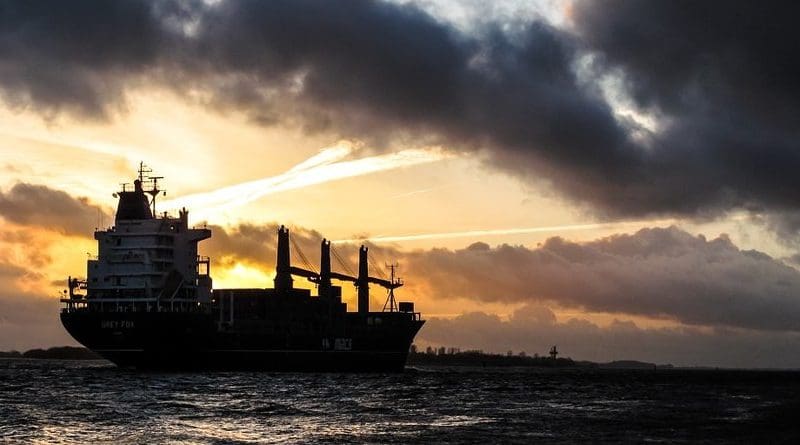145,000 Tonnes Of Indian Oil At Risk After US Blacklists Chinese Shipping Companies – OpEd
The US has placed sanctions on several Chinese companies and their top officials for allegedly shipping Iranian oil, putting dozens of supertankers off limits to western energy traders. As a direct impact of the blacklisting of Chinese shipping company Cosco, 145,000 tonnes of Indian Oil is at risk.
The US Treasury department on Wednesday blacklisted two oil tanker subsidiaries of Cosco, a leading Chinese shipping and logistics company, although the parent company remains unaffected.
China Concord Petroleum, Pegasus 88 Limited, Kunlun Shipping Company and Kunlun Holding Company were also sanctioned.
The sanctions against Cosco subsidiaries alone could affect 40-50 tankers, about half of which are very large crude carriers — the giant supertankers used by international oil traders for long-haul voyages, said Erik Broekhuizen, head of tanker research and consulting at Poten & Partners, an energy broker in New York.
The Financial Times reported in August that the Trump administration was tracking the movement of tankers linked to Bank of Kunlun, a subsidiary of China’s biggest state-run oil company China National Petroleum Corporation, amid signs that the vessels are helping to transport Iranian crude to China in defiance of US sanctions against Tehran. In August at least three Kunlun-linked tankers had been spotted interacting with Iranian vessels since May through Planet Labs satellite imagery, which was provided to the Financial Times by TankerTrackers alongside maritime data from MarineTraffic.
Indian Oil Corp is also examining the impact of U.S. sanctions on its chartering of a crude carrier owned by a subsidiary of China’s Cosco Shipping Corporation.
“The matter is being examined,” IOC said in response to a Reuters email seeking comment after the U.S. Treasury Department on Wednesday imposed sanctions on five Chinese nationals and six entities it said had violated Washington’s unilateral curbs on Tehran.
IOC has chartered Da Yuan Hu, owned by Cosco Shipping Tanker Dalian, for the lifting of 145,000 tonnes of Mexican Isthumus oil. The vessel is expected to start its voyage to Paradip port in eastern India on Oct. 10, Refinitiv Eikon data shows.
More than two months and 20,000 kilometers (12,000 miles) ago, the tanker Da Yuan Hu left Singapore and headed to Mexico to pick up a shipment of crude oil. On Thursday, with less than two weeks to go until it reaches its destination, its long quest could be in jeopardy. The ship, along with dozens of others, is now ensnared in the standoff between the U.S. and Iran.
The announcements by the U.S. Treasury and State departments left shipbrokers and charterers scrambling to cancel bookings with sanctioned companies and letting provisional charters lapse. Uncertainty still remains on whether cargoes that have already been loaded onto the vessels of sanctioned firms would be allowed to deliver, or whether they would have to transfer their loads to unsanctioned tankers, reported Bloomberg.
US sanctions come amid a new escalation of tensions in the Middle East after Saudi Arabia’ Aramco Oil facilities were attacked by drones on 14th September. In April, Washington had announced countries including India and China, which are currently important Iranian crude oil, will either have to end their imports completely or be subjected to American sanctions. China and India were the largest importer of Iranian oil.
While the Chinese are resisting what the call their sovereign right to a free and fair maritime trading, India has drastically cutoff its import of Oil from Iran and meanwhile have signed billion dollar deals with Saudi Aramco and American Tellurian Inc.

